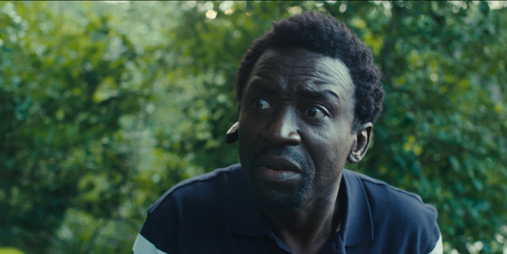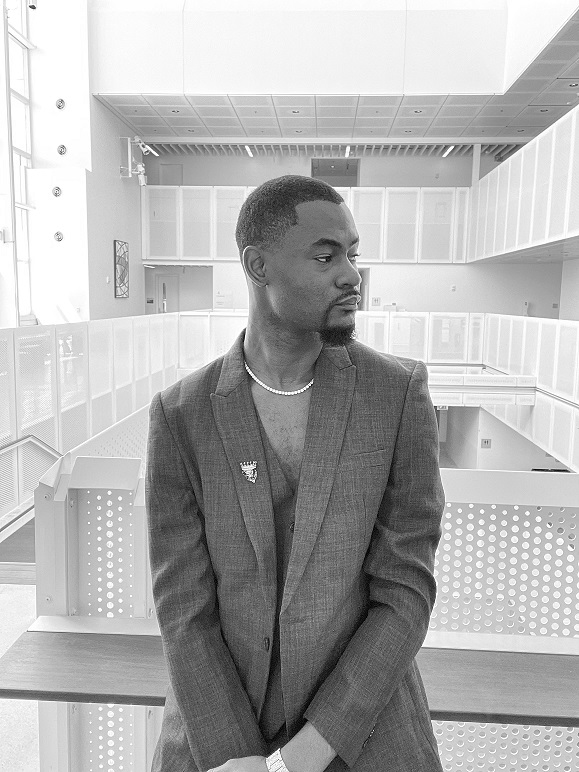When Dakore Egbuson-Akande received the script for YE!, a short film about trauma and spirituality, she felt an instant connection to the character of Stellar and wanted to understand her more. Something terrible had happened in Stellar’s life, a violent upheaval, and the woman we meet has found one half of her answers: she is a spiritual force who is expunging the pain of her past, bringing herself to forgiveness.
Familial trauma is familiar territory for Egbuson-Akande, who played a woman shackled by childhood molestation by her father in 2015’s Fifty, a role she reprised in a Netflix series adaptation of the film, a subject that continues to interest her. Yet Tola in Fifty was a different mental challenge from Stellar, and both are melancholic opposites of the titular character in Isoken, the role that won her the Africa Movie Academy Award for Best Actress in a Leading Role in 2018.
“I find that, in Fifty, Tola doesn’t know how to channel her pain, [but] Stellar moves the needle because she takes back her power,” the longtime Nollywood star told me. “That’s indicative of the growth women have access to now, to process our pain and become stronger in spite of it, and transform, ascend.”
Stellar, a Nigerian woman, travels to the US, ostensibly to visit her hospitalized daughter, and on a street, she meets Lenny, a male driver, whose bus she enters. Soon, we find that Lenny, played by Tony Okungbowa, is not who he presents as, and that Stellar, a woman seemingly in need of sympathy, may be reaching for revenge.
Okungbowa told me that the director John Adekoje’s script was “challenging.” “The script came to me as part of a bigger discussion I was having with [him] about another amazing Afro Futuristic project he wrote,” the Nigerian British American actor said. “[It] has some similar elements which I am very interested in exploring in unique ways. It afforded a different approach to the subject matter.”
He found one similarity between Lenny and an earlier character he played, in the 2013 drama Mother of George, a Yoruba man named Biyi Balogun who goes to America. Both are immigrants who want a better life, but Lenny is running from much more: a dark secret.
Playing a man who makes such a change, living a new life with memories of the old, requires a juggle of the mind. There is a revealing moment when Lenny asks Stellar to inform his wife of their meeting. It is a request of such audacity given his past, which comes across as either a lack of self-awareness or a desperate, vulnerable human moment.

“Something I learned a long time ago is to never judge my character’s choices,” Okungbowa said. “Lenny believes that he did what he had to, in order to survive. While it might seem extreme to some, to others it was necessary. In that vein, I see him as a victim of circumstance and have empathy for him. I had to find his humanity.”
Around Stellar and Lenny, oblivious to Lenny, spiritual forces gather. They are the Ajumose, explained in the film notes as a “covert,” “celestial league of women who use ancestral memory to reconstruct the occupied mind.” The cult, we learn, is guiding Stellar.
We see, in the opening scenes and later on, a dance sequence, to a Fela instrumental: Stellar in a sleeveless white gown, white markings on her face, moving in the centre of the Ajumose, who are dressed head to toe, veiled, in blue, chest embroidering in gold, carrying baskets, throwing red roses. YE! successfully works the imagery of red roses: they are strewn in a clear pond on the road, and, in Stellar’s memories, they fill the floor, and she is gathering them to her chest, and she, kneeling with a broom, sweeps them into a pail, suppressing a scream which we hear as loud, as internal, as a voice that may not be hers.
The beautiful, slow dances required Egbuson-Akande to call upon her background as a musician. She’d started her career as a vocalist and dancer, in a band that, in 2004, opened for Roy Hargrove at the Queen Elizabeth Hall in London. “I was thrilled to tap into that side to bring another flavor to the character,” she told me.
Okugbowa, too, is a musician; he’d DJ’d the Grammys in 2004 and had two stints as resident DJ on The Ellen Degeneres Show. His Lenny does not dance in YE!, but I asked him about music’s ability to tell and carry a story. (Four songs play in YE!: Fela’s “Trouble Sleeps, Yanga Wake Am,” OWO’s “Elements,” Paul I.K. Dairo’s “Moso Rire,” and Jackie Queens’ ‘I’ll Find a Way”; and the film comes with a soundtrack blending Afrobeats, Afro-fusion, Afropop, Afro-house, and Afro-hop). What does he feel the music in YE! enhances in the experience of the film?
“Try watching a cut of a film without the music, it won’t have the same potency,” he said. “Music in YE! is one of the characters. The team did an incredible job traversing and merging the different worlds and cultures musically, which in turn enhances the film. It is the spoon of sugar that makes the medicine go down.”
For Egbuson-Akande’s Stellar, the medicine is bitter even in music. “Stellar is fresh yet familiar,” Egbuson-Akande said. “As a mother, a wife, she’s universal yet otherworldly. She’s unlike any character I’ve played, yet I recognize certain characteristics from my journey as an artist and human being.” ♦
If you love what you just read, please consider making a PayPal donation to enable us to publish more like it.





